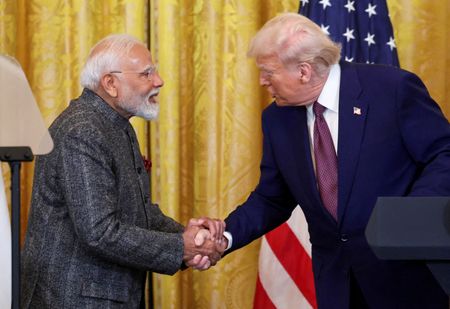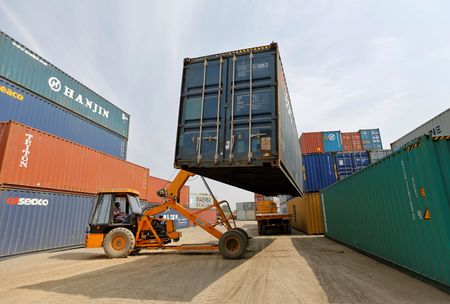SRINAGAR, India (Reuters) -At least 34 people died and more than 200 were missing following sudden, heavy rain in Indian Kashmir, officials said on Thursday, the second such disaster in the Himalayas in a little over a week.
The incident occurred in Chasoti town of Kishtwar district, a stopover point on a popular pilgrimage route. It comes a little over a week after a heavy flood and mudslide engulfed an entire village in the Himalayan state of Uttarakhand.
The flood washed away a community kitchen and a security post set up in the village, a pit stop along the pilgrimage route to the Machail Mata temple, one of the officials, who declined to be named because he was not authorised to speak to the media about the incident.
“A large number of pilgrims had gathered for lunch and they were washed away,” the official said.
The Machail yatra is a popular pilgrimage to the high altitude Himalayan shrine of Machail Mata, one of the manifestations of Goddess Durga, and pilgrims trek to the temple from Chasoti, where the road for vehicles ends.
“The news is grim and accurate, verified information from the area hit by the cloudburst is slow in arriving,” Omar Abdullah, the chief minister of India’s federal territory of Jammu and Kashmir, said in a post on X.
Television footage showed pilgrims crying in fear as water flooded the village.
The disaster occurred at 11.30 am local time, Ramesh Kumar, the divisional commissioner of Kishtwar district, told news agency ANI, adding that local police and disaster response officials had reached the scene.
“Army, air force teams have also been activated. Search and rescue operations are underway,” Kumar said.
A cloudburst, according to the Indian Meteorological Department, is a sudden, intense downpour of over 100 mm (4 inches) of rain in just one hour that can trigger sudden floods, landslides, and devastation, especially in mountainous regions during the monsoon.
The local weather office in Srinagar predicted intense showers for several regions in Kashmir on Thursday, including Kishtwar, asking residents to stay away from loose structures, electric poles and old trees as there was a possibility of mudslides and flash floods.
(Reporting by Fayaz Bukhari, writing by Shilpa Jamkhandikar; Editing by YP Rajesh, Aidan Lewis)









